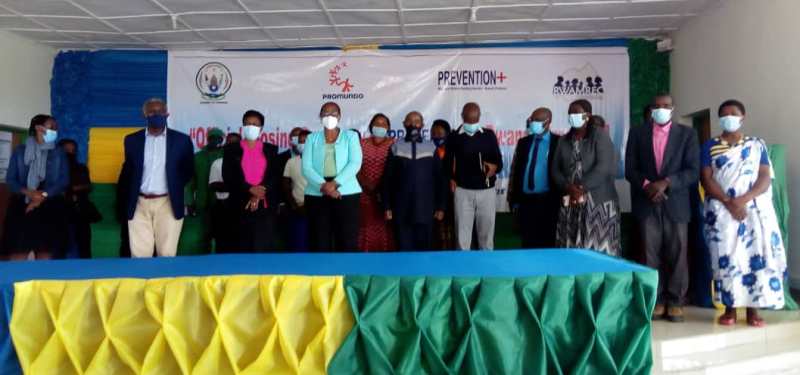RWAMREC records reduced domestic violence within households

Different officials and beneficiaries attended the closing ceremony of Prevention+ Project managed by RWAMREC.
The Prevention+ Project managed by the Rwanda Men’s Resource Centre (RWAMREC), has recorded positive changes and reduced domestic conflict within many households and communities.
The project implemented in Karongi District, Western Province from 2016 until 2020, has worked with young people through Youth for Change clubs established in secondary schools of Karongi. It was also implemented in one Higher Learning Institution (Integrated Polytechnic Regional College IPRC) and at village level where it worked with couples through Umugoroba w’Ababyeyi (parents evening dialogue).
Some of key results of Prevention+ project include; increased understating of men working with their wives as partners; young men and women share domestic activities in their respective households; increased healthy relationships and reduced domestic violence between couples; increased knowledge and skills for parents evening dialogue (umugoroba w’ababyeyi) committee members to handle cases of gender based violence in the community and reduced related complaints to local authorities.
Increased self-confidence among young women and girls; equal participation of men and women in household decision making on property use and management; many families in illegal marriages have been legalized; men who positively changed their attitudes and behaviors act as role models to change their peers; improved family dialogues and concentration on family development; improved living conditions f families .
Schools are free from gender based violence (there is mutual respect and healthy partnership between boys and girls); peer education on positive masculinities / femininities at school, at home and in the community.
Increased gender based violence reporting and reduced early pregnancies among teenagers in school communities.
Transfer of youth for change clubs’ knowledge and skills to the students’ home districts. Increased self-confidence and school performance among young girls.
The Prevention+ program is not only implemented in Rwanda, but also in other 3 countries including Uganda, Indonesia and Lebanon.

